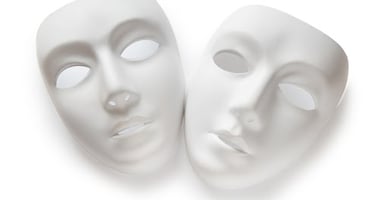The second-generation antipsychotic asenapine may help to reduce mania and the severity of illness...
Study Finds Olanzapine-Fluoxetine Combo Superior to Placebo for Bipolar Disorder in Children
 |
The double-blind study by researchers at Eli Lilly and Company randomized 170 young patients with bipolar I disorder experiencing an acute depressed episode to the olanzapine/fluoxetine combination (OFC) and 85 to placebo for up to eight weeks of treatment. The primary efficacy measure was mean change in the Children’s Depression Rating Scale-Revised (CDRS-R).
Baseline-to-week-8 least-squares mean change in CDRS-R score was greater for OFC-treated patients than for placebo-treated patients, with between-group differences statistically significant at week 1 and all subsequent visits. Rates of and times to response and remission were statistically significantly greater for OFC- than placebo-treated patients. The most frequent treatment-emergent adverse events in the OFC group were weight gain, increased appetite, and somnolence. Treatment-emergent hyperlipidemia was common among OFC-treated patients.
“OFC was superior to placebo and approved by the U.S. Food and Drug Administration (FDA) for the acute treatment of bipolar I depression in patients 10-17 years of age. Benefits should be weighed versus the risk of adverse events, particularly weight gain and hyperlipidemia,” the researchers said.
To read more about research on child and adolescent bipolar disorder, see the Psychiatric News article, "Link Found Between Glutamate, Adolescent Bipolar Disorder."
(Image: Blade Tucker/shutterstock.com)




